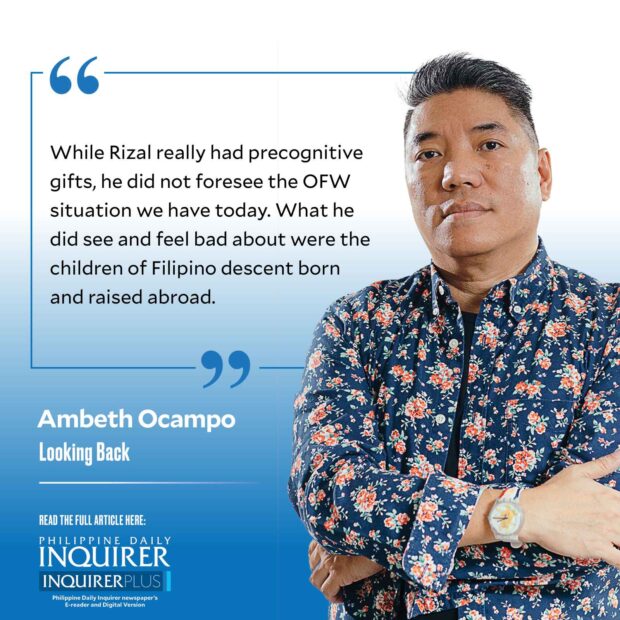
On the Skyway to Terminal 1, I could only imagine the stress of people bound for Terminal 3, cursing the long lines of cars at the exits or, should I say, choke points. In the past, getting to the predeparture area was an obstacle course. First, cars slowed down at the approach to the terminal, guards asked drivers to open the trunk and lower the passenger-side front window to flash a beam of light into the glove compartment. Second, to gain entry into the terminal, you had to show your ticket and one valid ID (in other places you need to show two) to another guard. Third, you go through primary X-ray screening at the terminal entrance. Fourth, you check in at the counter where, if you are lucky, airline staff who think they are part of immigration will ask for the purpose of your travel or if you are a government employee. Fifth, you go through immigration. Sixth, and final step, is a secondary X-ray inspection. If you are flying to the United States, there is a visa check and another bag check.
A welcome innovation by the present airport management that decongested terminal access is to have only one X-ray screening after check-in. One can only hope that the BI innovates as well to prevent human trafficking without inconvenience to legitimate first-time and infrequent Filipino travelers. When I listen to many who want to jump ship and establish themselves abroad, and see young Filipino women presenting all sorts of papers to immigration officers that is one last hurdle before they chase after opportunities abroad denied them in the land of their birth or an older generation of overseas Filipino workers (OFWs), who have left to save up money then return home, I remember Jose Rizal and Apolinario Mabini who returned to die in their homeland.
While Rizal really had precognitive gifts, he did not foresee the OFW situation we have today. What he did see and feel bad about were the children of Filipino descent born and raised abroad. Rizal was quite fond of Juan Luna’s son Andres or “Luling,” and he was the godfather of Luna’s daughter whose kilometric baptismal name was: Maria de la Paz Blanca Laureana Herminigilda Juana Luna y Pardo de Tavera! Her nickname was “Bibi,” short, I guess, for “Baby.” In May 1889, there was another Filipino baby who was to be christened in Spain, and Rizal sent this poignant letter to Fernando Canon, the boy’s father. Rizal opened with an apology, that his was an “ordinary letter,” that he had been abandoned by the muse of poetry that should have inspired him to gift the newborn with verse, poetry to lull the baby to sleep. First came the felicitations:
“… I truly share your joy, I congratulate you and your wife, I felicitate Spain, because I am sure that Fernandito [Little Fernando] can only fall heir to the noble qualities and good dispositions of his parents, and such citizens do not abound everywhere.”
Then, the bittersweet part:
“Nevertheless, I cannot refrain from expressing to you a certain melancholy upon thinking that this new being in whose veins Filipino blood runs and who will be educated with so much care will afterwards be a lost member for a country that is in need of men.
“I have the same sentiment when I hold in my arms the son of [Juan] Luna and Pacita Pardo—he is one French more and one Filipino less.
“It is true that the Europeans who go to the Philippines give us their children, but what children, what education, and what love they have for the country! But no one is to blame for this except the country itself that reserves for its inhabitants many things besides malaria, earthquakes, and typhoons.
“In the great whirlwind of the world, let each atom look for the best nucleus, let it rise when and where it can! The only thing you can do is to educate your child well and inculcate in him noble and honorable sentiments so that one day, if good luck sends him to the Philippines, he may not be one of so many who exploit the ignorance of the unfortunate, and be one more tyrant to the brothers of his father. All honorable men of the world are compatriots.
“May you and your family be happy. May your son be the mirror which reflects your good qualities, and if the Philippines loses a son, at least humanity may gain one.
“May the lechon and dinuguan sacrificed at his baptism influence somewhat his tender being like the atmosphere of a distant homeland, like the perfumes of tropical flowers …”
It is a pity that Rizal left 25 volumes of writing to a people who do not read him. His novels and poetry are forced on students who are taught to skim for patriotic quotes and sentiments instead of enjoying these as literature. He left many letters like the above that continue to be relevant because the situation of the Filipino has not changed much from Rizal’s time.
Comments are welcome at aocampo@ateneo.edu